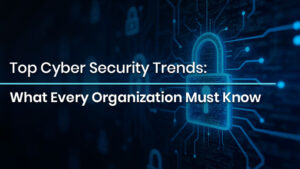
Top Cyber Security Trends: What Every Organization Must Know
Top Cyber Security Trends: What Every Organization Must Know Introduction In an era marked by digital transformation, remote workforces, and rapidly evolving threat landscapes,
Limited-Time Offer! Get an exclusive 40% OFF on IPSpecialist Premium Monthly & Annual Plans. Use Promo Code: UPSKILLNOW at checkout.

Top Cyber Security Trends: What Every Organization Must Know Introduction In an era marked by digital transformation, remote workforces, and rapidly evolving threat landscapes,

Zero Trust vs. SASE: Everything You Need to Know Introduction As the cyber world continues to change, companies need to look beyond conventional security

Cloud Security Posture Management (CSPM) Introduction In the era of digital transformation, organizations are moving to the cloud at an unprecedented pace. While the
Table of Contents

“I have been online since 1989; I was SysOp on several CompuServe forums – Dave Debronkart”
IT world’s recent trends are DevOps and SysOps. If you are in the field of IT, you must have heard of these two. Only being familiar with these terms is not enough if you want to be a part of the ever-evolving technological world. You should know a lot about Ops especially if you are interested in Cloud Computing. In this blog, our focus will be on what is SysOps and how can you be a SysOps administrator on the most widely used cloud platform i.e. AWS.
The administrator of a multi-user computer system is called a Sysop. The term can also be used to refer to the administrators of internet-based network services. The term SysOps or system operator was used to denote any person who was responsible for any computer system, but with the advent of Cloud Computing, this term is used to refer to those professionals who are responsible for multi-user systems. The SysOps team is responsible for provisioning and managing servers, taking care of the software, wiring network devices and much more.
As the pubic cloud vendors including AWS realized the significance of SysOps in infrastructure management and application deployment, they started to encourage the use of SysOps with their respective certifications.
Along with all other AWS certifications, to endorse a candidate’s SysOps administration skills; AWS also offers AWS Certified SysOps Administrator Associate certification. This certification validates an individual’s expertise in deployment, management, and operations on the AWS platform. This exam is considered the most tough in the AWS Associate category examinations.

SysOps is the basic need for almost all organizations and AWS certifications are industry-recognized credentials that can your career to the new heights. The average salary of an AWS certified SysOps Administrator is around $130,610. AWS SysOps certification is universally appealing because it targets general troubleshooting and operations on AWS platform. It is worth having this certification on your resume.
The traditional job of a SysOps administrator has evolved a lot. The basic responsibilities of an AWS SysOps administrator are: configuration of AWS Cloud management, along with managing and monitoring AWS services. Other roles and responsibilities include:
With the mentioned roles and responsibilities, it is clear that the SysOps professionals are involved throughout the lifecycle of a project.
Since you are now aware of the roles and responsibilities of a SysOp, you can identify if this is the certification you are interested in or not. The roles that are in the most need of this certification are; system administrators and operation managers. Those who perform operations and use AWS platform can also go for this certification. This certification will give you a strong grip of what is going on in your AWS architecture.
If you have planned to go for this certification, you need to prepare for this. The best way to prepare for any certification is to look for an in-depth training course. Here comes IPSpecialist in the picture. IPSpeciailst offers a well-structured workbook for AWS Certified SysOps Administrator – Associate certification training. This workbook is developed by qualified engineers and networking professionals. It contains all the information regarding the test domains and practice labs to give you the complete overview of AWS services and infrastructure. You are also provided with practice questions that are very close to the real exam.
© 2025 All rights reserved | Privacy Policy | Terms and Conditions | Sitemap | Cookie Policy




